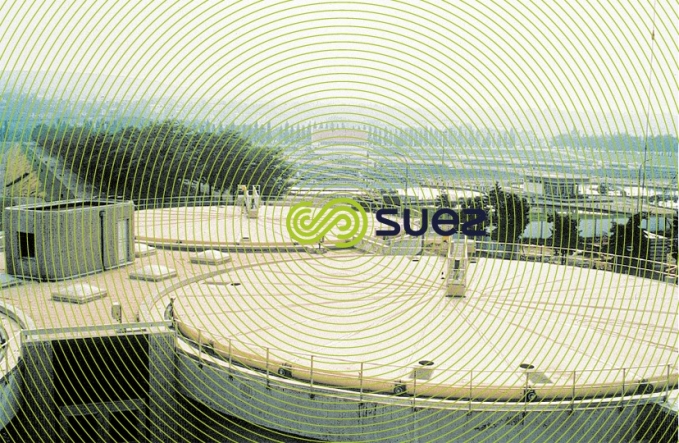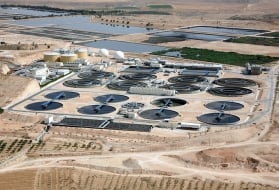flotation units used in sludge thickening
Reading time:general
When processing water that contains high levels of suspended solids (several grams per litre), flotation is used in units that are mainly characterised by:
- a specially designed mixing chamber;
- greater depth for greater sludge storage (up to 80 cm), thus optimising thickening;
- a skimming system comprising a great many skimmer arms;
- sludge removal chutes laid out in such a way as to increase the volume of sludge removed each time the skimmer arm passes;
- the possibility of adding an anti-odour cover attached to the skimmer arms (see § below).
The full-flow pressurisation technique is normally used for this type of treatment.
Although the rectangular shape can be used, the circular form will produce units that perform better, especially in the larger ranges, with simple equipment and very much reduced maintenance requirements.
The F/M ratio constitutes the dimensioning criterion, ranging from 3 to 12 kg DS · m–2 ·h –1, depending on sludge quality and concentration (sludge index) and whether or not a polymer flocculating agent is used. Extracted sludge concentration can vary from 25 to 60 g · L–1 depending on their origins.
anti-odour cover
Although this is not essential, sludge flotation units can be covered over. The rotating cover system comprises: fabric stretched over the skimmer arms, providing a cover just above water level and, therefore, reducing the volume that has to undergo odour control (photo 30).



flotation units – thickeners (FE and FES types) see also sludge thickening
These are available in two versions:
- either metal (FE flotation unit – thickener) in standard units up to 8 m in diameter with centrally driven skimming;
- either concrete (FES flotation unit – thickener) in standard units up to 20 m in diameter with peripherally driven skimming. Beyond 15 m in diameter, these units have two diametrally opposed sludge removal chutes.
Bookmark tool
Click on the bookmark tool, highlight the last read paragraph to continue your reading later













